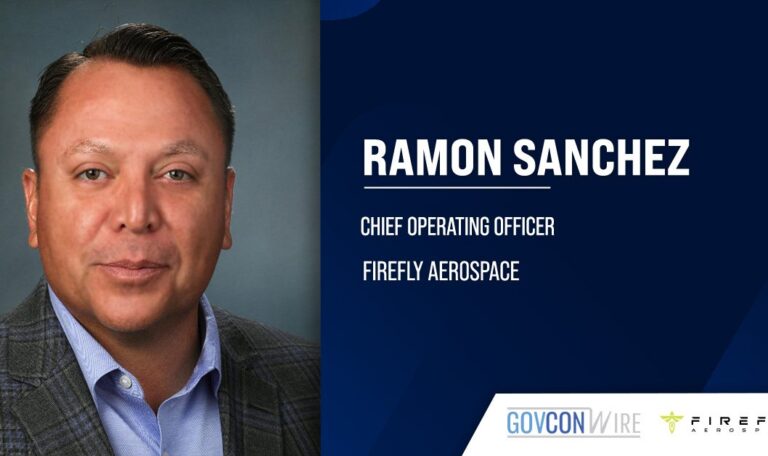Chuck Brooks, a highly esteemed cybersecurity leader, has published his latest feature as a member of Executive Mosaic’s GovCon Expert program exploring the importance of linking integrated networks with robust communications as well as command and control on the battlefield in a multi-domain environment, which has been critical in the Ukraine’s defense against a greater adversary.
“As evidenced by tactical communications successes in Ukraine, secure and resilient communications will become even more of a digital imperative in future conflicts. No doubt that the tactical uses of drones and the robotic forces along with all the forces and elements of air, sea, and ground in the multi-domain warfare domain of the future will have to rely on an integrated warfighting network.”
You can read the full article from GovCon Expert Chuck Brooks below.
The Integrated Warfighting Network Is The Future Of Battle Communication Readiness
By GovCon Expert Chuck Brooks
Every conflict has lessons learned. There are many operational insights to gain from examining the current Russia/Ukraine War.
One critical point for analysis is noting the importance of an integrated network to enable distributed command and control concepts that benefit the warfighter in theater. This has been a key ingredient of Ukraine’s success against a much larger and better-equipped adversary.
Linking secure and robust communications and command and control on the battlefield in a multi-domain environment setting has enabled Ukraine to strategically mitigate Russian advantages in manpower and weapons deployed against Ukrainian forces.
Resilient and secure communications for warfighters with satellite, aircraft, and drone surveillance has allowed for rapid decision-making and analytical options that can change the face of battle.
In our increasingly digital world, the convergence and integration of communications and the IT backbone makes profound sense. It is good to see the USAF leading the way on this initiative in collaboration with the other military services.
As described by the Air Force Research Lab, “the Integrated Warfighting Network (IWN) is a technical architecture developed by the DAF Chief Architect’s Office (CAO) and partners to enable secure, flexible, robust, and resilient communications at the tactical edge and across the enterprise for the USAF and USSF.
IWN answers the Secretary of the Air Force’s Operational Imperatives to strengthen the digital infrastructure and minimize stove-piped networks.” THE INTEGRATED WARFIGHTING NETWORK: EDGE CONNECT – Air Force Research Laboratory (afresearchlab.com)
According to GovCon Wire writer Sumner Wyatt, the Air Force is working on an “integrated warfighting network, that aims to expand the service’s IT capabilities to the edge and equip troops engaged in agile combat employment operations in the field with the ability to make informed command and control decisions.”
At a Gov Con event in February 2022, Preston Dunlap, the Department of the Air Force’s chief architect said that the IWN will finally combine enterprise IT and warfighting IT; two elements that Dunlap explained have been “almost totally separated” until this point. Air Force’s Integrated Warfighting Network Finally Merges Enterprise & Warfighting IT – GovCon Wire
A prototype version of the IWN architecture – Edge Connect – was evaluated as part of the Valiant Shield 22 exercises held in the Pacific in May and June 2022. The Integrated Warfighting Network (IWN) has two primary components existing within the same architecture –Enterprise Connect and Edge Connect.
Six IWN-Edge Connect MVP kits were provided to PACAF during Valiant Shield 22. Edge Connect provided critical beyond-line-of-sight connectivity for data transport, command, and control.
In the successful exercise, “Edge Connect” provided secure, and resilient communications that can be used with Starlink, LTE, Satcom, and others across multiple islands in the Pacific, and with multiple users including USAF, MDA, USMC, and the Army.
The culmination of exercise concluded with fire messages from F35’s being relayed through the Edge Connect kits over commercial transport to Patriot missile batteries that were used to shoot down a drone.
Specifically, IWN’s Edge Connect provides a flexible, robust, resilient Software-Defined Wide Area Network that improves overall band-with and can utilize the resiliency of cellular or commercial communications combined with traditional military pathways.
With Edge Connect, operators in the field can be provided with timely and secure classified information over commercial networks.
This early success of IWN architecture has also been recognized by The Advanced Technology Academic Research Center, a collaborative forum for government, academia, and industry for an Emerging Technology Award in the field of IT modernization. The leading companies involved in creating and orchestrating the innovative IWN architecture include Microsoft, Amazon, and Juniper Networks.
DOD’s two largest cloud providers, Amazon and Microsoft, worked closely with Juniper on integrating their Session Smart Routing solution (SSR) with the overall Edge Connect Solution. Juniper’s Session Smart Router provides a flexible, application-aware network fabric that meets stringent enterprise performance, security, and availability requirements.
The advanced design of the Session Smart Router replaces the traditional routing plane with one built for security from the ground up. The Session Smart Router provides native zero-trust security, leveraging hyper-segmentation.
The Session Smart Router is software-based and deployable on white-box CPE, data center network servers, and the cloud. Succinctly, the SSR solution enables agile, secure, and resilient WAN connectivity with breakthrough economics and simplicity.
It is great to see the Department of Defense and industry collaborating on adapting commercial solutions to benefit warfighters at risk in battle. Preston Dunlop is exactly right in stating that the IWN project brings together and meshes IT enterprise capabilities with IT warfighting capabilities.
As evidenced by tactical communications successes in Ukraine, secure and resilient communications will become even more of a digital imperative in future conflicts. No doubt that the tactical uses of drones and the robotic forces along with all the forces and elements of air, sea, and ground in the multi-domain warfare domain of the future will have to rely on an integrated warfighting network.
It is encouraging to already see the many accomplishments that will come from continued work on this project as exemplified by Valiant Shield 22.
About GovCon Expert Chuck Brooks
Chuck Brooks, President of Brooks Consulting International, is a globally recognized thought leader and subject matter expert Cybersecurity and Emerging Technologies.
Chuck is also Adjunct Faculty at Georgetown University’s Graduate Cybersecurity Risk Management Program where he teaches courses on risk management, homeland security technologies, and cybersecurity.
He is also IEEE Cyber Security for Next Generation Connectivity Systems for Quantum IOT Vice-Chair and serves as the Quantum Security Alliance Chair for IOT. LinkedIn named Chuck as one of “The Top 5 Tech People to Follow on LinkedIn.















